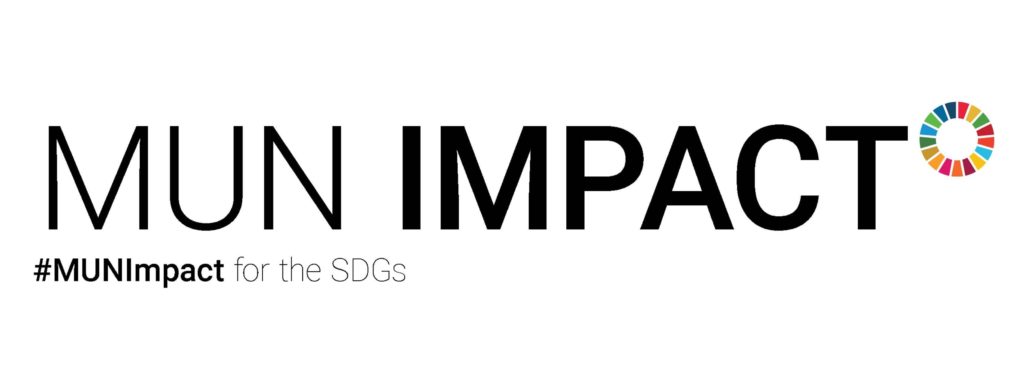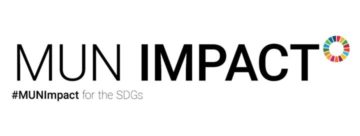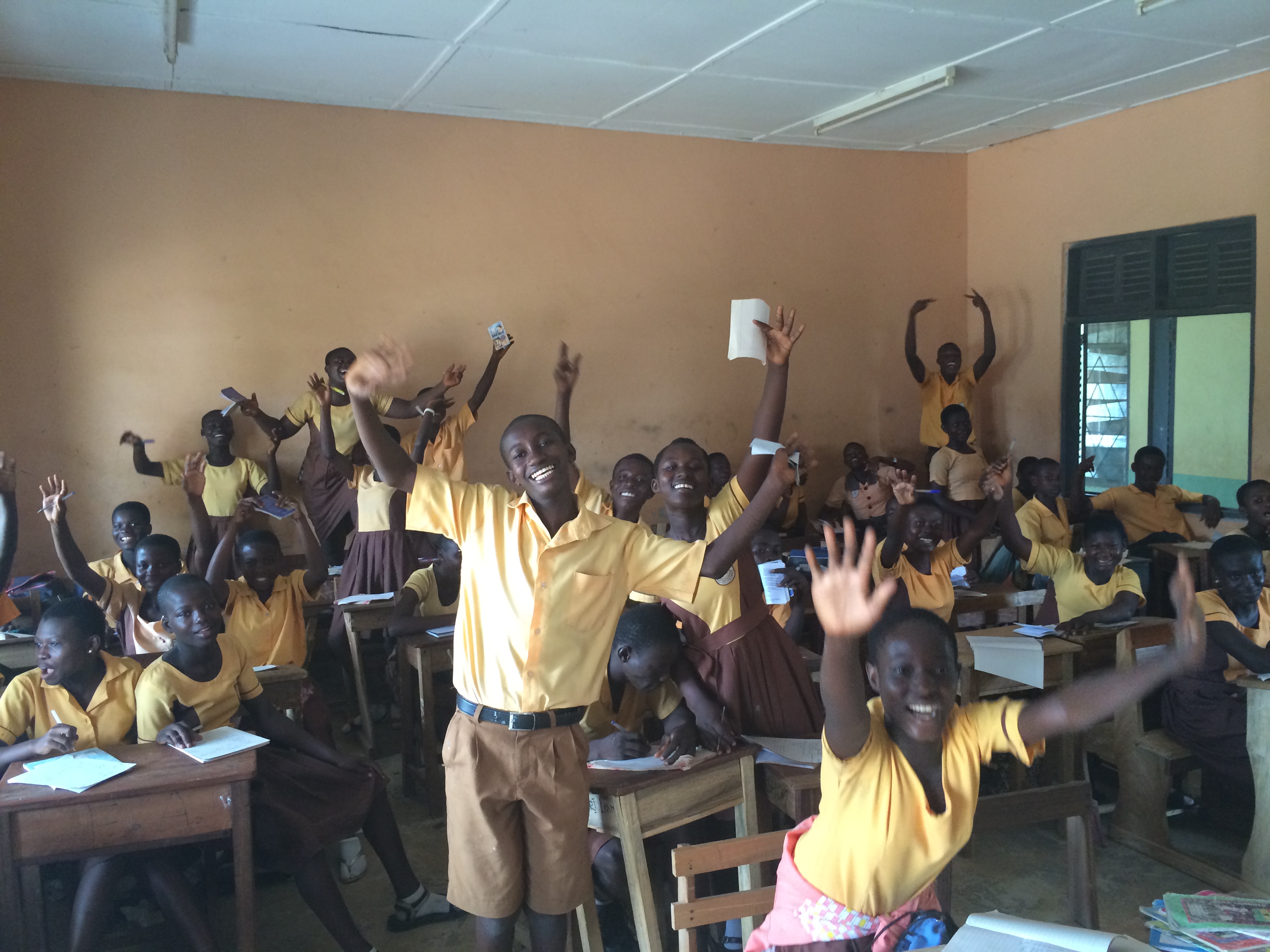By Océane Balbinot-Viale, Former MUN Delegate
___________________________________________________________________________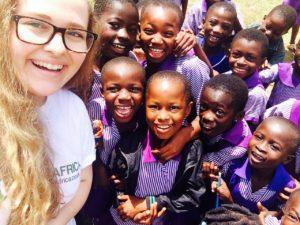
“What a life-changing journey“ I thought, as I was sat on the plane taking off from the international airport of Accra, Ghana. I started reminiscing about the past month I’d spent in the countryside bordering Kumasi, one of country’s largest metropolitan cities. Where I’d lived during my time there however, there was not a single sign of industrial life in sight. The muted-yellow savanna extended as far as the eye could see and a car driving past our house would be the most unusual event of the day, if not the week. When I say our house, I mean mine and eleven other volunteers’: I’d travelled to Ghana at the end of my first year at university in the hope to give life to the debates I’d found so fascinating in my high school MUN years. I’d become mesmerised by the idea of youth empowerment and sustainable livelihoods, and had thus applied to volunteer in Ghana through a locally-run organisation. I was unsure as to what to expect; I’d been so confidently debating the ways to go about concepts of environmental mitigation, human rights and systemic gender issues in MUN, that every conference had ended up feeling like a second home. Yet, here I was, in a new environment, without a microphone and resolution in hand, nervous but determined that I could contribute to meaningful change. After all, my MUN experience is what had convinced me to take a leap of faith and throw myself into the deep end. I reached the fundraising target required by ThriveAfrica, the organisation through which I’d applied, before the departure date and knew then that there was no turning back.
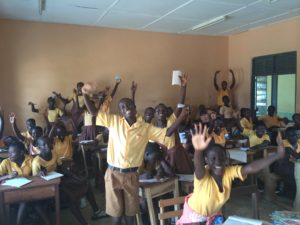 I’d be lying if I said the four weeks I spent in rural Ghana were easy. They weren’t. We all quickly realised that, with the twelve of us there, we’d need to cut down the numbers of showers to one per person per week, among other things. Yes – I know – that sounds ridiculously low. We were all having to move beyond the every day comfort we’d always taken for granted and realise that we were still luckier and in a better position than most people in the country. During my time there, I worked on developing children’s homes and providing environmental education. This experience gave me a once-in-a-lifetime opportunity to apply my MUN experience to real life, and, vitally, help sew the seed of environmental conservation to the indigenous community. I had thorough knowledge of the multilateral governance of these issues, gained through the many conferences I had attended, but helping local peoples become agents of their own success was truly a journey I’ll never forget. The impact you make by helping to empower even only a couple of people, is priceless, for it transcends time and will be passed down from one generation to the next.
I’d be lying if I said the four weeks I spent in rural Ghana were easy. They weren’t. We all quickly realised that, with the twelve of us there, we’d need to cut down the numbers of showers to one per person per week, among other things. Yes – I know – that sounds ridiculously low. We were all having to move beyond the every day comfort we’d always taken for granted and realise that we were still luckier and in a better position than most people in the country. During my time there, I worked on developing children’s homes and providing environmental education. This experience gave me a once-in-a-lifetime opportunity to apply my MUN experience to real life, and, vitally, help sew the seed of environmental conservation to the indigenous community. I had thorough knowledge of the multilateral governance of these issues, gained through the many conferences I had attended, but helping local peoples become agents of their own success was truly a journey I’ll never forget. The impact you make by helping to empower even only a couple of people, is priceless, for it transcends time and will be passed down from one generation to the next.
I wouldn’t have thought in a million years I’d one day have the confidence to get out of my comfort zone to this extent if I hadn’t done MUN. MUN empowered me, so I could empower others. And that’s where the success of these conferences lie; in th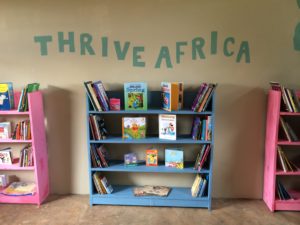 e ability to create vision; for the people, for the planet, for the future. Vision will drive you, and it’ll drive progress. As writer Jorge Luis Borges puts it, “wisdom lies neither in fixity nor in change, but in the dialectic between the two”; I kindly invite you to reflect on this. MUN will not give you answers, it will do better: it’ll teach you to ask yourself the right questions. I was once an insecure, doubtful, overwhelmed middle-schooler, but I was lucky enough to engage in MUN somewhere along the way, and it challenged my perspectives forever. I grew, not only as an individual but also as a leader, I became a curious mind and an engaged soul. Six years after attending my first ever MUN conference, I started an internship at the United Nations Environment Programme (UNEP) in Nairobi, Kenya. Isn’t it incredible how some things come full circle? Regardless of what happens now, I know my journey won’t stop here and I hope you know yours won’t either. This generation has so much to offer to the worlds of research, diplomacy and policy-making, if only we gave ourselves a chance to succeed. MUN already has.
e ability to create vision; for the people, for the planet, for the future. Vision will drive you, and it’ll drive progress. As writer Jorge Luis Borges puts it, “wisdom lies neither in fixity nor in change, but in the dialectic between the two”; I kindly invite you to reflect on this. MUN will not give you answers, it will do better: it’ll teach you to ask yourself the right questions. I was once an insecure, doubtful, overwhelmed middle-schooler, but I was lucky enough to engage in MUN somewhere along the way, and it challenged my perspectives forever. I grew, not only as an individual but also as a leader, I became a curious mind and an engaged soul. Six years after attending my first ever MUN conference, I started an internship at the United Nations Environment Programme (UNEP) in Nairobi, Kenya. Isn’t it incredible how some things come full circle? Regardless of what happens now, I know my journey won’t stop here and I hope you know yours won’t either. This generation has so much to offer to the worlds of research, diplomacy and policy-making, if only we gave ourselves a chance to succeed. MUN already has.
